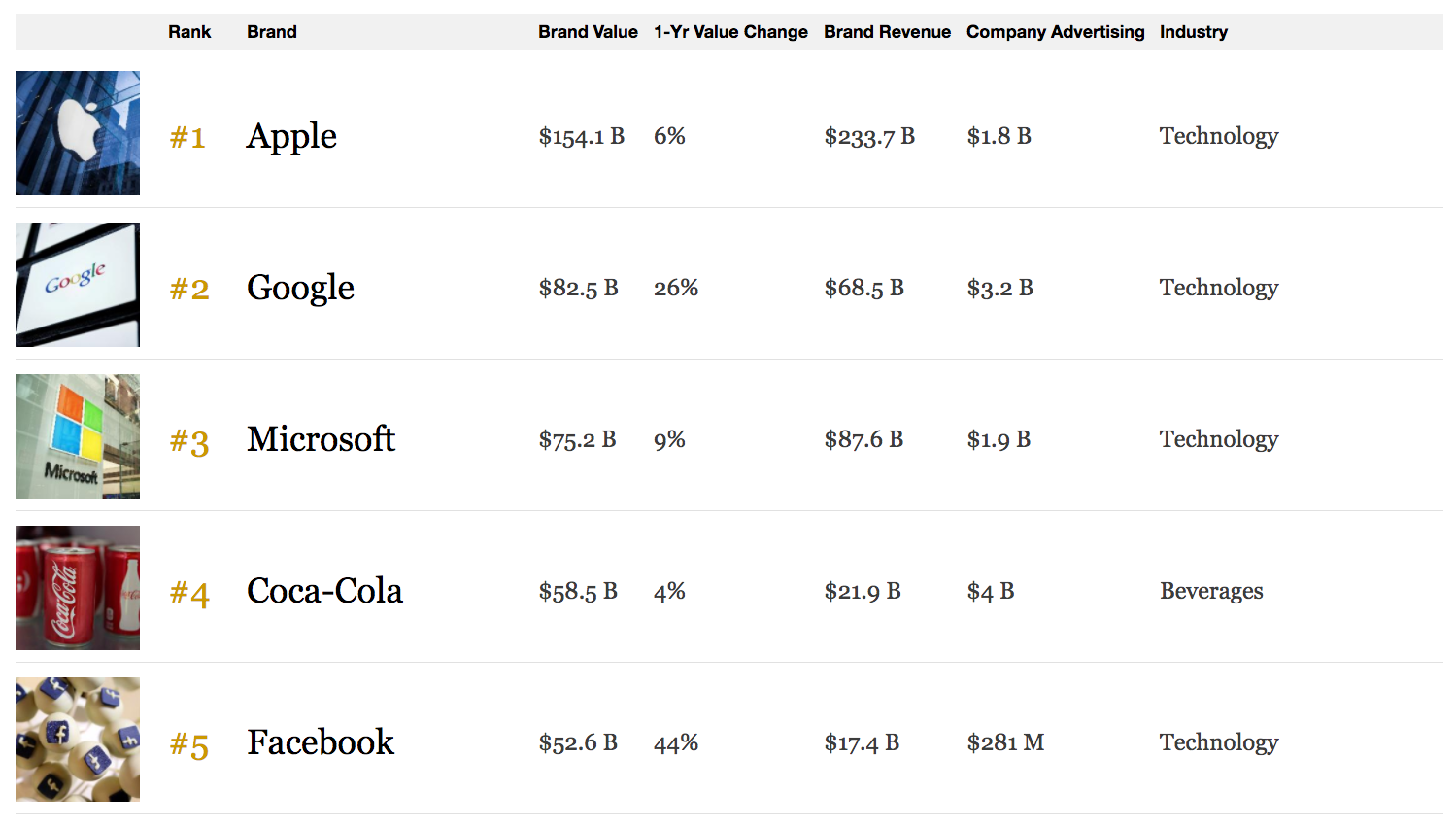Each year on April 26th the intellectual property community celebrates World Intellectual Property Day to recognize the role creation and innovation has played in our lives. Intellectual property – ranging from patents and trademark to copyrights and trade secrets – has made our lives safer, more comfortable, and through innovation is turning problems into progress.
Trademarks, or “brands” as they are known in the advertising and marketing community, are the more familiar form of Intellectual Property that people interact with on a daily basis. From the morning cup of Starbucks® coffee to the late-night snack from McDonald’s® our lives, our possessions, are an array of trademark choices often influenced by a trademark’s reputation. As a brand grows in recognition and reputation so can its value and so it is appropriate on World Intellectual Property Day to not only recognize the world’s most valuable brands, but also to consider why trademarks are a valuable asset to any business.
The Most Valuable Brands of 2016:
Authorities differ on which brand was the most valuable in 2016, but there is a general consensus that certain brands consistently rank among the world’s best in reputation and value[1]. The following list from Forbes offers no surprises as to which companies have the most valuable global brands, but perhaps food for thought is the fact that something as simple as a trademark can be worth billions of dollars:

Why Trademarks are Valuable to Any Business:
No matter the size of a business, nor the goods and services it sells, its trademarks are likely to be the most valuable asset it has. Even so, many businesses underestimate the potential value of their brands and how to get the most value out of a trademark. Trademarks have a certain role to play in the business arena. Knowing what that role is and then allowing a trademark to properly do its job could turn a new business enterprise into the next billion-dollar business world leader.
1. Trademarks Relay Information to Consumers:
Trademarks are an efficient way to market your products to consumers. They are source identifiers. They tell consumers that here is the source of a certain product of a certain quality and reputation. Trademarks help consumers find products among a sea of competing goods and the more distinctive and recognizable a trademark is, the more likely it will stand out from its competitors and influence a consumer’s choice of purchase.
Importantly, it is consumer experience that creates value or “good will” in a brand. The more consumers learn that when buying a certain product, they will get a certain experience – good or bad – the more the reputation of the brand under which the product is sold grows.
2. Trademarks Can Efficiently Promote Your Products, and Enhance Business Reputation Through the Internet:
Many consumers use the Internet to search for information on products and services and typically do so by typing a brand name into the search engine. The more a trademark is marketed and becomes known to consumers, and the more consumers search the Internet by using that trademark, the higher that trademark tends to appear in Internet rankings. A higher ranking can in turn generate more traffic and greater consumer interest toward the trademark resulting in greater brand value.
3. Trademarks Ensure Companies Don’t Lose Business to Competitors:
Trademark law is designed to protect consumers from becoming confused between products and from accidentally purchasing one product when they intended to purchase another. The goal of a trademark is to prevent that confusion by being as distinctively different from competitors’ marks as possible. Logically, no business wants to lose customers. A business should, therefore, not only adopt trademarks that are distinctive, but also monitor the marketplace to make sure competitors are not appropriating customers by intentionally using a confusingly similar brand.
4. Trademarks Can Enhance Employee Experience:
A brand’s reputation can have an effect on employees working under that brand. If the brand has a good reputation, employees may feel more positively toward their jobs, and have a greater sense of pride in their work. A more reputable brand is more likely to draw applicants for employment positions than a brand with a bad reputation. A more reputable brand can create better business opportunities for the brand owner.
5. The Billion Dollar Brands Were Initially Purchased for a Few Hundred Dollars:
An application for a federal trademark can be as little as $325; less for a state registration, and the fees to maintain a registration every five or ten years are only a couple of hundred dollars.[2] Considering the value a good mark can add to a company, the cost to adopt, use and register a trademark is a bargain.
Without a doubt, our lives are better today because society encourages innovation and creation, and recognizes the value of intellectual property. As the world celebrates World Intellectual Property Day, take a look around and see how creation and innovation over the years have enhanced your life.
[1] A brand’s value should not be confused with a company’s value. A brand can be considered an asset entitled to its own entry on the company balance sheets.
[2] While the United State Patent and Trademark Office, and various State offices, have made applying for a trademark a fairly simple process, there are pitfalls and seeking legal advice from an Intellectual Property Attorney is recommended.
